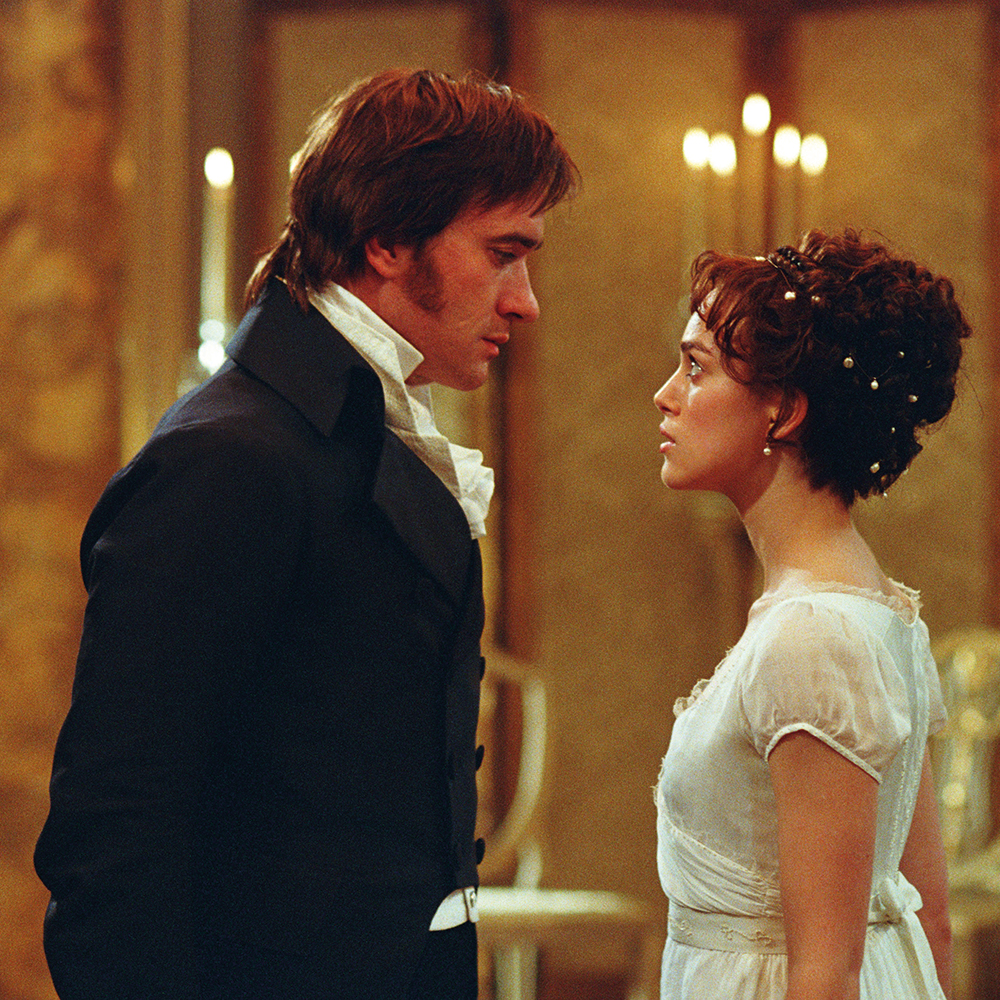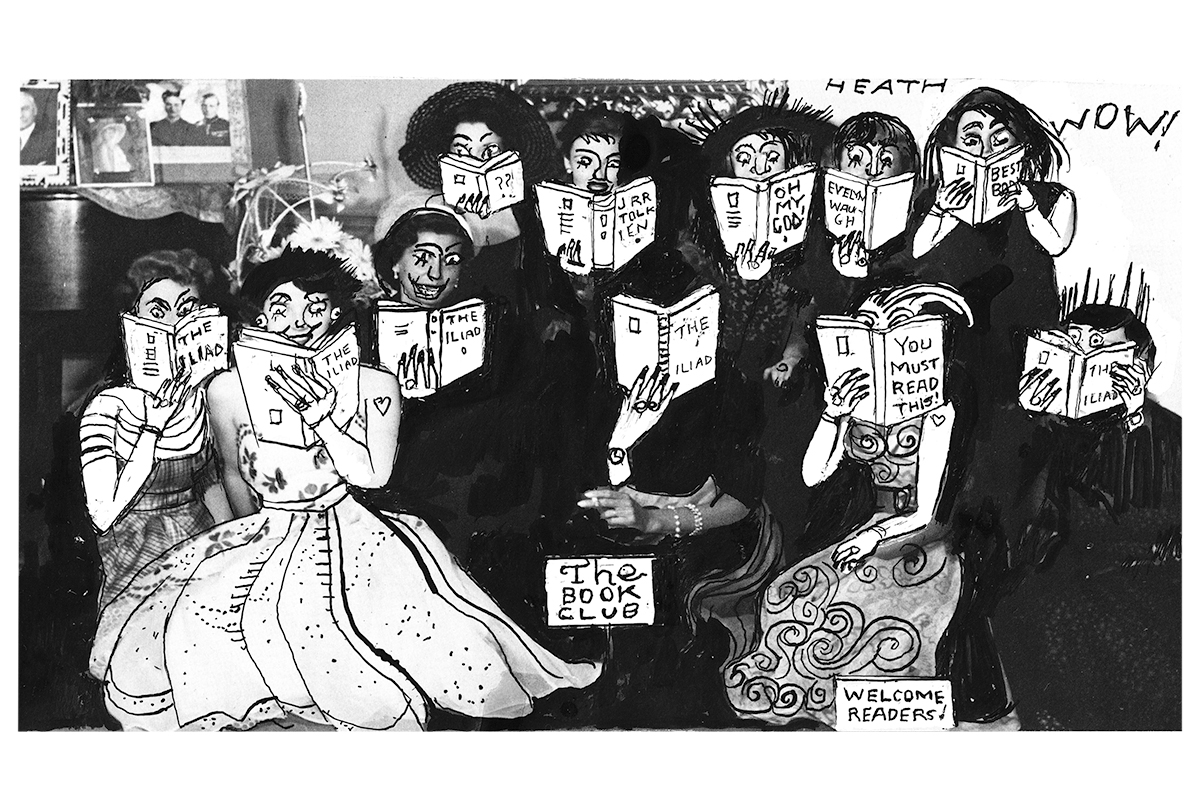Jane Austen was born in Hampshire on December 16, 1775, the seventh child of a poor country rector. Despite being red-cheeked and a good dancer, she never married. And despite the handful of novels she wrote under the byline “A Lady,” she was always considered by her family less promising than her older sister. She died of a painful illness at 41.
Her books found a readership that included the Prince Regent, but she had some prominent detractors. Charlotte Brontë scorned them: “I should hardly like to live with her ladies and gentlemen in their elegant but confined houses.” Where were the windswept moors, the big feelings? In the next century, D.H. Lawrence dismissed Austen as “mean” and “snobbish.” It is striking that 250 years after her birth, Austen should have surpassed these more passionate novelists – and everyone else, too – as the romance writer par excellence.
The 1990s were her breakout decade, with adaptations and updates in every register. Emma Thompson and Kate Winslet starred in a classy Sense and Sensibility, Gwyneth Paltrow in an equally classy Emma. Alicia Silverstone played a SoCal Emma in Clueless. But the pop-Austen canon centers on Pride and Prejudice. In 1995, the UK ground to a halt once a week for the pious, plodding BBC miniseries that put Colin Firth in breeches and made him a supernova. In 1996 came Bridget Jones’s Diary, a bestseller whose heroine is “addicted” to the BBC series and aspires to her own Mr. Darcy. The third millennium brought a glossy feature-film Pride and Prejudice, among other delights. The undercard novels (Mansfield Park, Persuasion, Northanger Abbey, the fragment Sanditon) became feature films, BBC series, or both. We look forward to more in this anniversary year.
Why do our hearts throb to Austen’s stories? Isn’t it all stilted dialogue in drawing rooms? Film directors, much like Brontë, don’t want to be stuck indoors with her ladies and gentlemen. They seek any excuse to send them outside, as Martin Amis tut-tutted over the BBC P&P. But there is plenty of warrant for it in the novels. Elizabeth Bennet rambles about the countryside and jumps over stiles; Marianne Dashwood tumbles down hills; Emma Woodhouse wants to spend more time outdoors than is proper for a lady; Fanny Price becomes wan if she doesn’t get her exercise on horseback. The gentlemen walk, ride and go shooting, for “gentlemen cannot be always within doors.” Austen’s romantic leads chafe, more or less discreetly, against physical and social and erotic constraint. It is a fact of their lives, and essential to their drama and pathos. “In vain have I struggled”: what is Darcy without a stick up his arse? Austen’s people are more strait-laced than we are, more buttoned-up and corseted, which is why they’re more romantic.
Not only are civilized people sexier. We also appreciate Austen’s ethics
Not only are civilized people sexier. We also appreciate Austen’s ethics. Her comedies drive toward marriage, the integration of individuals into couples and of couples into society. Failing this integration, romantic love degenerates into libertinism (think Wickham or Willoughby) or solipsism (think Marianne, swanning around the downs like a Brontë heroine and catching her death). Austen’s romances are more agenda-setting than Brontë’s or Lawrence’s because she foregrounds our desire that our loves should survive, and that we should survive our loves. We want harmony as well as authenticity.
The balance is lost on many of her updaters, who prefer TMI to reticence and have no special regard for marriage. Bridget Jones is a 1990s-model Lizzy Bennet with the filter removed. Her goal is to marry Mark Darcy – or at any rate to shag him. Netflix’s recent Persuasion offers slapstick humor and, in the role of Austen’s most dignified heroine, Dakota Johnson, the erstwhile star of Fifty Shades of Grey.
This summer, Lena Dunham returned to TV with a romantic comedy called Too Much. The heroine departs New York for England, which she views through the lens of BritBox. England appears as a fantasyland, dotted with tributes to Austen and other rom-com influences. In interviews, Dunham declared her intention to update the genre and make it “inclusive.” She gave us a heroine uninhibited in both speech and action – “messy,” in the show’s parlance, and proud of it.
Here is another Austenian trait the modern rom-com has abandoned: she judges us, morally and not morally. In her novels, the lovers work to deserve each other. Elizabeth and Darcy overcome their pride (and prejudice). Bridget Jones wants to better herself, too, only not morally. She wants to be lovable – meaning thin – so her diary charts her weight-loss, at least in intention. With Too Much, the devolution continues. Dunham rejects the convention that a rom-com shows its lovers working on themselves. Her heroine is played by an overweight comedienne, a Bridget who doesn’t aspire to be thin, much less to grow in virtue.
With its Austenian callbacks, Too Much reminds us that to dream of catching a Darcy (or a Firth as Darcy, or a Hugh Grant as Edward Ferrars) has become the proverbial romantic fantasy, at least for millennials. Austen scripted our dreams. And yet her novels are not escapist. She grants her characters no more happiness than they deserve, and often less. Like reality itself, she is sternly biased in favor of the young, pretty, witty, wealthy, healthy and virtuous. She shows that a woman may lack two, at most three, of those qualities and still be marriageable – but not the second and certainly not the sixth, which happens to cover the Sixth Commandment. The heroines of Sense and Sensibility and Pride and Prejudice are not wealthy. The heroine of Northanger Abbey is neither wealthy nor witty; that of Persuasion is neither witty nor young. The heroine of Mansfield Park is neither witty nor wealthy nor healthy. The heroine of Emma is everything. All of Austen’s heroines are pretty. All are virgins upon marriage.
Bridget Jones’s Diary and Too Much splashily contend that a woman need be none of these things – well, maybe witty – to snag her Darcy. Of course, scorning prettiness has literary precedent. Brontë’s Jane Eyre attracts Mr. Rochester through expressive charisma, as in her heartfelt protest that plain women are people, too. Bridget Jones’s Diary and Too Much proclaim that messy women deserve romantic love. But a young man ought to be good-looking “if he possibly can,” says Elizabeth Bennet, and it’s witty because it’s true. The only correction we can offer is that it applies equally to young women.
Austen is not here to affirm us. She did not write her novels in a spirit of inclusivity. As for the modern rom-coms that pay homage to her, the great irony is that they tear down Elizabeth Bennet. Generations of women have wished to see themselves in Elizabeth not primarily because she becomes Mrs. Darcy, but because she is herself to begin with: prettier, wittier, more virtuous than we are. Elizabeth, even more than Darcy, is an ideal. The modern rom-com forgets this because it’s so busy getting the hero on the cheap. Austen remains supreme in part because women don’t merely want dazzling men, we want to be dazzling ourselves.
This article was originally published in The Spectator’s September 15, 2025 World edition.























Leave a Reply